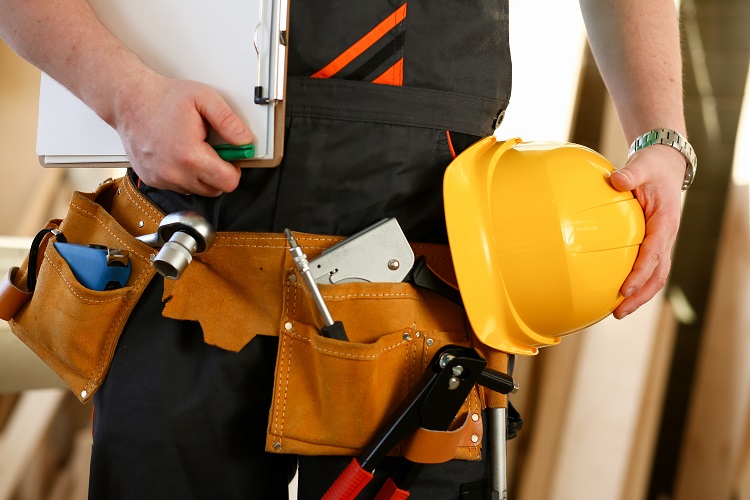Essentials of a Tradesman: Tool Belt and Hand Tools

For many tradesperson, strapping on a tool belt is more than just having easy access to tools. It can become personal and part of who they are. From my own experience as a carpenter, I would like to share some thoughts on the subject. I am also interested in hearing what does and does not work for you.
I suggest approaching the purchase of a new tool belt much like buying new clothes. You will want to make sure if fits and feels comfortable. Imagine climbing up ladders and scaffolding, bending down, twisting, and carrying materials all day with tools in your pouches. Keep this in mind when trying on tool belts.
There are many different materials to choose from. Make sure the belt can breathe properly and does not dig into your skin when weight is applied. Spending a little extra for a quality belt may be beneficial in the long run. Look for a tough and durable belt that cannot be easily ripped, slashed, or punctured by sharp objects, nails, or screws. Many professionals choose leather or nylon belts.
The number of pouches and pockets is a personal preference that can depend on the type of work and tools carried. For example, an electrician may prefer many small pockets for wire nuts and clips, a holder for electrical tape, and a place for their lineman’s pliers, but a steel erector may have a couple large pouches for bolts and washers, a holder for their spud wrench, and a pocket for their welding rods. It is all a matter of what works best for you.
Suspenders can be helpful if you carry extra weight in your tool pouches. Investing in a quality tool belt suspension system can be a great help to ensure the extra weight from your tool belt is evenly distributed across your body, keeping the pressure and strain off your waist. This will also help ensure you are not having to pull up your pants throughout the day due to the extra weight around your waist.
The positioning of pouches on the belt is also a personal preference. Some like their pouches in front of them like an apron, and some like wearing them on their sides. I personally like my pouches more toward the back sides with my hammer in the back. This keeps my front clear to carry things and work.
Staying comfortable while working and avoiding unnecessary weight in your pouches is important. Make sure you inspect your pouches each morning and ensure you have the tools and fasteners you need for the task at hand. On days I would be laying out, I would switch from my typical tool belt and pouches. I would put my hammer holster on my pants belt for my hammer, wear a white cloth waist apron, and carry a measuring tape, snap line, marker, a few nails, and a speed square in my back pocket. This was all I needed to perform laying out while staying comfortable bending down for several hours a day.
A salute to all our tradesperson as they create buildings or building components from raw materials and keep our country moving forward!
An insurance company that cares about you and insuring the things you wish to be insured.
Get a Quote> Find an Agent>

